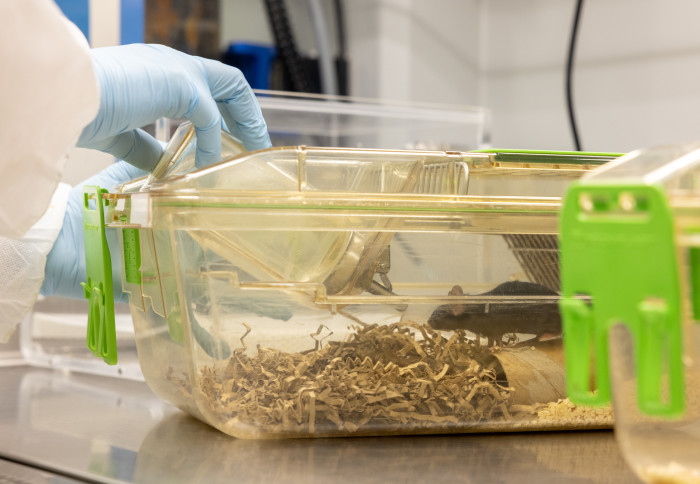Imperial’s international animal welfare accreditation is reconfirmed

The animal care and welfare standards achieved by Imperial’s staff and facilities have been reconfirmed by an international animal welfare society.
The prestigious recognition from the Association for Assessment and Accreditation of Laboratory Animal Care (AAALAC International) supports Imperial’s efforts to provide excellent care and welfare to animals used in research.
Imperial College London uses animals only where necessary and unavoidable. Good welfare and adherence to the principles of reduction, replacement and refinement of animal research (known as the 3Rs) underpin this research.
AAALAC accreditation was awarded to Imperial for the first time in November 2018, following the recommendations from a group of volunteer experts who evaluate the institution’s animal care and welfare practice. Since then, Imperial has reported on improvements made to its animal care and welfare programme every year.
In October 2021, three years after the first visit, four inspectors from AAALAC spent two days at the College visiting the research facilities and observing staff at work. Following a comprehensive review of the Imperial animal care and welfare programmes and the inspectors’ report, the AAALAC council confirmed that Imperial’s Central Biomedical Services (CBS) maintain their full accreditation status.
The AAALAC council commended the staff for providing and maintaining a high-quality programme of laboratory animal care and use. In particular, they highlighted staff’s knowledge and open communication, the well maintained and organised facilities, the appearance of healthy animals and the College’s commitment to the 3R’s.
Robert Floyd, the Director of CBS, said: “This is an excellent achievement and our first re-accreditation since becoming the first academic institution in the UK to gain AAALAC accreditation. Have an externally verified assessment of our animal care programme demonstrates our continued commitment in setting, achieving and maintaining the highest standards in our work to directly promote scientific validity and improve outcomes.”
Article text (excluding photos or graphics) © Imperial College London.
Photos and graphics subject to third party copyright used with permission or © Imperial College London.
Reporter
Press Office
Communications and Public Affairs
- Email: press.office@imperial.ac.uk
